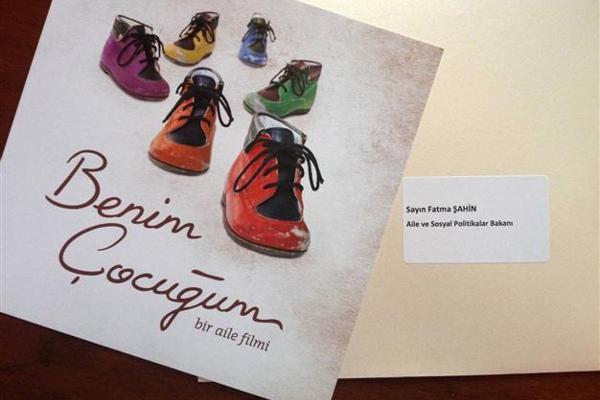‘Gay movie’ screening by Amnesty fails to attract some Turkish deputies
ANKARA - Hürriyet Daily News


My Child (Benim Çocuğum) puts the families of LGBT individuals in the spotlight for the first time. Hürriyet photo
The “My Child” (Benim Çocuğum) documentary film prepared on the initiative of the mothers of two gay people was screened for Turkish deputies, attracting the attention of only five out of 550.Amnesty International’s event in Ankara on April 15 was attended by main opposition Republican People’s Party (CHP) vice presidents Gürsel Tekin and Sezgin Tanrıkulu as well as deputies Melda Onur, Aykan Erdemir and Tufan Köse.
The ruling Justice and Development Party (AKP) was represented by Safiye Seymanoğlu while the Nationalist Movement Party (MHP) and Peace and Democracy Party (BDP) were absent.
Families demanded “single color” ID cards – in Turkey national IDs are blue for males and pink for females – from the deputies. Tekin pledged full support to the families.
Pınar Özer from the Families of LGBT in Istanbul (LISTAG) said her child had succeeded in changing her ID to pink from blue but she had suffered many difficulties.
Özer said it should change to a neutral color for both genders.
Erdemir said his party would like to bring a hate crimes code to Parliament’s agenda.
Another special screening might take place in the Turkish Parliament soon, Amnesty International’s Turkey branch director Murat Çekiç told the Hürriyet Daily News.
The movie was financially supported by the Dutch and Swedish consulates in Istanbul and Britain Embassy in Ankara, but the Turkish Culture Ministry refused requests for support.
“Everyone but the state helped us,” filmmaker and academic Can Candan, the director of the movie, said, according to Doğan News Agency report.
The documentary puts the families of LGBT individuals in the spotlight for the first time. The first half of the movie is a collection of intimate interviews with parents, as their quivering voices alternate in recalling the journeys their children and they themselves had to go through.
“Coming out” is a term hovering throughout the documentary. But more than the children’s coming out, it is the parents’ coming out that takes up most of the screen time.
These seven parents, whose troubled faces light up the screen, are, as one mother puts it, “the tip of the iceberg,” the iceberg that is LİSTAG, a civil initiative that took off in 2008. Their stories are of fear, despair, denial, shame, acceptance and – to these lucky families – rebirth.
